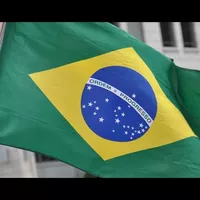How Brazil's election will impact the world economy
I think the American people ought to care what is happening in Brazil. It's the biggest
economy in South America and seventh largest in the world, but it's unfortunately in
a recession. It's in a standstill because the current policies have stunted the growth
of its economy. You have new forces of change in Brazil that the Brazilian people are taking
a good hard look at. New voices that say, “yes, we can protect the environment, yes
we can take care of the very poor of our country, but the only way—the best way really to
do that—is to have the economy growing and that means free market policies, free trade
with our neighbors, and better relationships with the United States.
Brazilians will go to the polls on October 5. The incumbent president, a woman named
Dilma Rousseff is seeking reelection for the second four-year term. She represents the
status quo essentially, which unfortunately has moved Brazil to a recession. Those statist
policies, government kind of top-down management of the economy, some corruption scandals that
have undermined confidence of investors. She is being challenged by traditional political
party leader who offers a free-market vision, his name is Aécio Neves But there is a very
interesting new candidate that might have captured a lot of peoples' attention—Marina
Silva. She is from sort of the activist, environmentalist community, but she's also been Environmental
Minister. She's definitely, literally a rags to riches story. She is offering a new
vision of growing the economy. Yes, taking care of the very poor, but understanding that
free market is the best way to do that. The American people ought to care about this because
if we can have Brazil growing—not only is it a different, reliable source of energy
close to home, but it becomes really a pillar of a South American economy. If we can get
these economies moving in the right direction--understanding that a free market is the best way to grow
opportunity for their people—that becomes a terrific partnership. If these economies
are more productive—if they're more competitive, we are able to compete with the rest of the
world; with Asia and with Europe. So, really having the Americas firing on all cylinders
is important. Unfortunately, right now, Brazil is not performing as well as it should. You
have a couple of these top tier candidates who are offering free-market messages and
the Brazilian people are paying close attention.
There will be an election October 5 and a runoff on October 26. It looks to be as if
the incumbent president, Dilma Rousseff and Marina Silva will move to a second round.
The incumbent still has an advantage there built in, naturally, but having said that,
there is a very good opportunity that the Brazilian people will choose a free market
course that could be very promising for their relationship with the United States.

